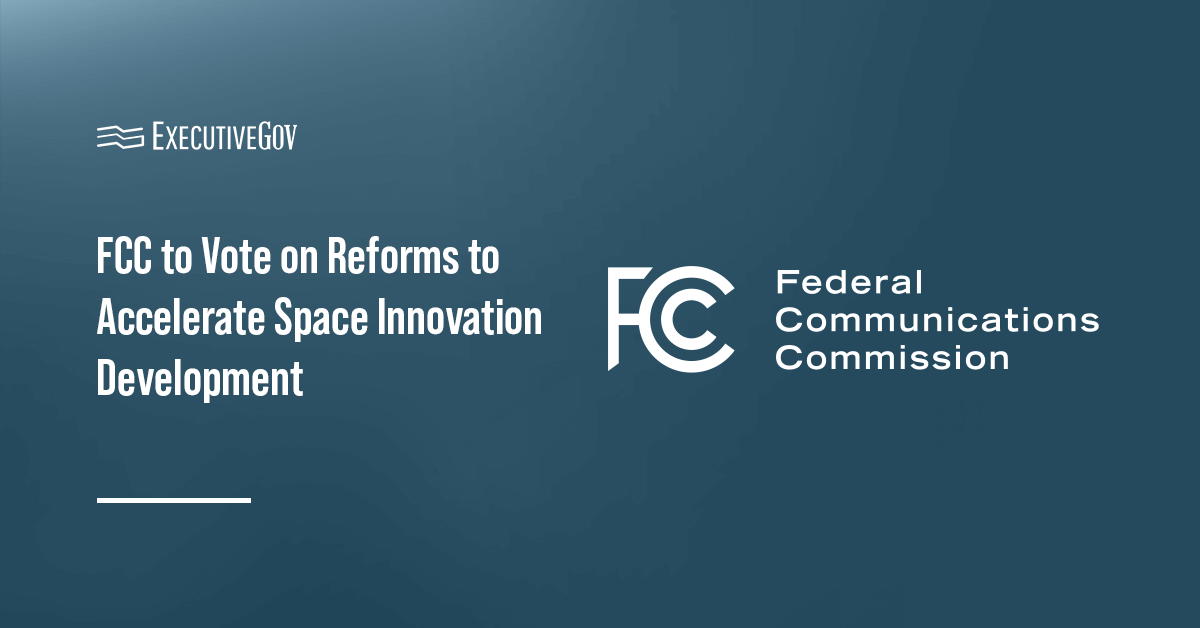Brendan Carr, chairman of the Federal Communications Commission, announced that the commission is set to vote on a series of proposed reforms to bolster growth and innovation within the nation’s space sector at its open meeting on Aug. 7.
Accelerating Space Innovation
The FCC said Wednesday the proposed changes focus on eliminating bureaucratic red tape that keeps companies, especially startups and new businesses, from fast-tracking the development of space-related technologies. The reforms aim to streamline processes by removing unnecessary regulatory practices like needless paperwork for license modification applications, enabling the ground-station-as-a-service model to streamline operations.
Register for the Potomac Officers Club’s 2025 Air and Space Summit on July 31 and get valuable insights on initiatives and policy changes to bolster air and space defense.
In addition, more license modifications will no longer need prior authorization, while redundant special temporary authority requests and outdated regulations, like printing a copy of the ICFS application, will be scrapped. The FCC will also have a 30-day “shot clock,” or deadline, to act on Earth station renewal applications. A new system will also be applied, enabling ground station operators to obtain a baseline license without specifying a satellite point of communication, requiring only an FCC notification.
“With this proposed decision, the FCC can streamline processes and accelerate the development of innovative new services. Clearing out regulatory barriers will empower new competitors and innovations in space, particularly the kind of neutral-host infrastructure that has proven so successful in the wireless industry,” said Carr.






